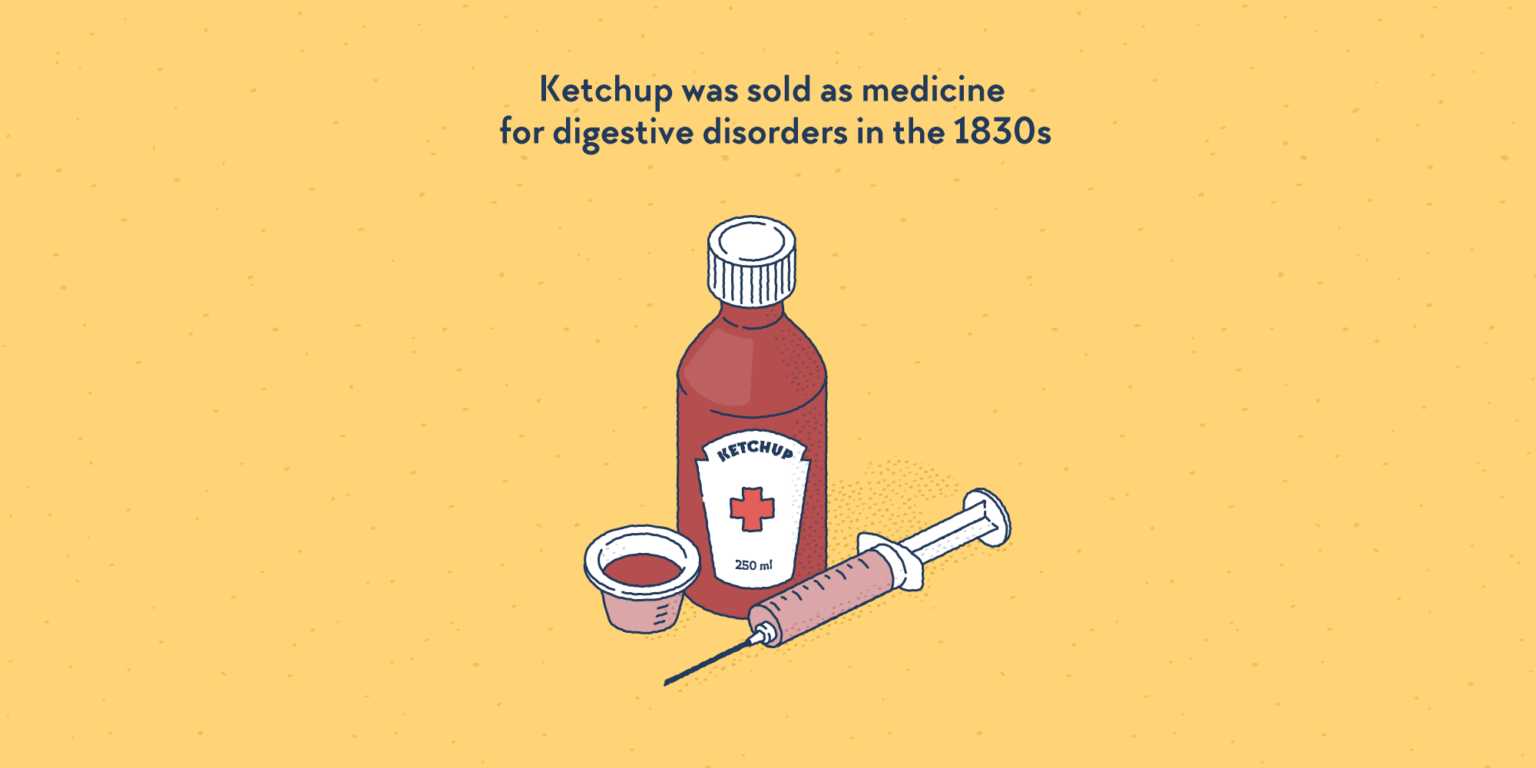Ketchup was sold in the 1830 s as medicine

Ketchup was sold in the 1830’s as medicine.

In the 1830s, a popular condiment that we know today as ketchup was actually sold as medicine. As surprising as it may sound, this sweet and tangy sauce was originally promoted as a cure-all remedy with various health benefits. Let’s delve into the interesting history of ketchup and how it transitioned from medicinal tonic to a beloved table sauce.
During the early 19th century, ketchup was primarily made from tomatoes, while its earlier forms were crafted from ingredients like mushrooms, anchovies, and walnuts. A pioneer in the manufacturing of this sauce, Dr. John Cook Bennett, claimed that ketchup could treat ailments such as indigestion, diarrhea, and jaundice. He even went as far as to suggest that it could cure tuberculosis, claiming that it had healing properties.

The popularity of Dr. Bennett’s medicinal ketchup grew rapidly, and it became widely available in the market. People started purchasing it not only for its supposed health benefits but also because it was considered a flavorful addition to meals. Moreover, it was readily accessible and relatively inexpensive.
However, as time passed, the medicinal claims surrounding ketchup started to lose their credibility. The development of modern medicine and the skepticism of health experts eventually debunked its supposed healing properties. Nonetheless, the sauce’s appeal remained intact due to its unique taste and versatility in culinary applications.
Over the years, ketchup gradually transformed into the beloved condiment we enjoy today. Manufacturers refined its recipe, creating a tomato-based sauce with a balance of sweet, sour, and umami flavors. Ketchup underwent mass production, improving affordability and availability.
In the late 19th century, a notable ketchup producer, Henry J. Heinz, introduced his own version of this sauce. Heinz’s ketchup set a standard for quality by using well-sourced ingredients and a winning recipe. The iconic Heinz ketchup bottle is now a staple in households worldwide.
Today, ketchup is no longer viewed as a medicine. Instead, it has become a quintessential sauce, indispensable in various cuisines. It adds a burst of flavor to hamburgers, hot dogs, fries, and many other dishes. Whether it’s used as a dip, a topping, or an ingredient, ketchup has found a permanent place in our culinary repertoire.
In conclusion, the fact that ketchup was sold as medicine in the 1830s is an intriguing chapter in its history. Although the notion of it being a cure-all may have been debunked, ketchup remains an immensely popular and beloved condiment around the world. So, the next time you squeeze that familiar bottle, remember that ketchup’s roots lie in its medicinal past.
Tags
Share
Related Posts
Quick Links
Legal Stuff

